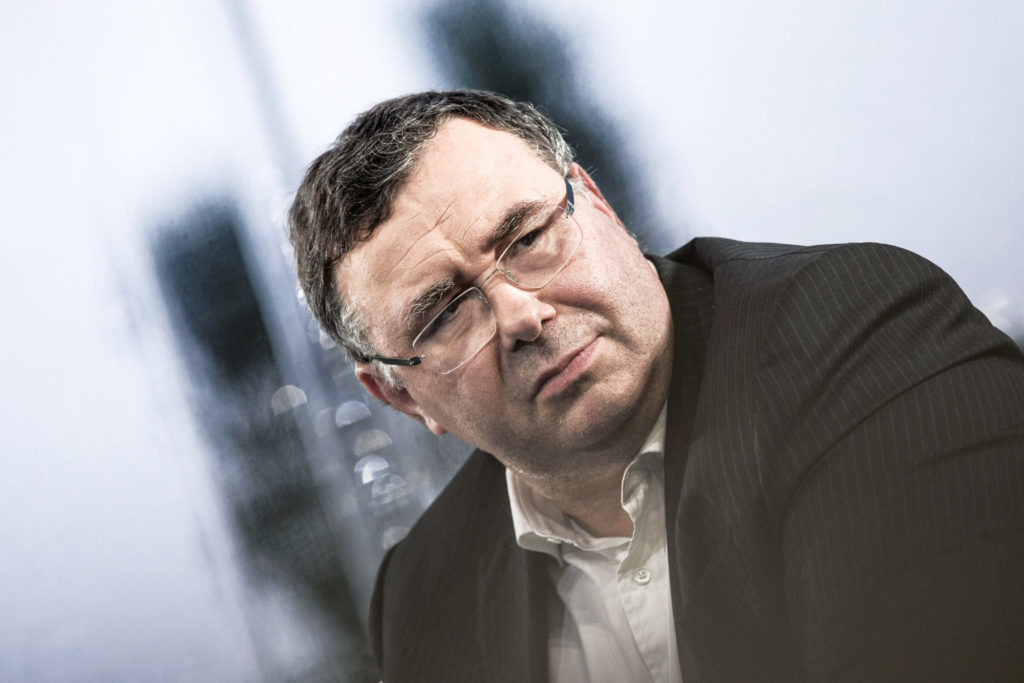
Patrick Pouyanne, the pugnacious boss of Total SA, sees risks differently.
The French oil giant became the first Western major to sign a deal with Iran following the end of sanctions, has added projects in Abu Dhabi and Qatar and Pouyanne said last week’s $450 million acquisition in Libya is one of his “best deals ever.” He is expanding in the region even as some of his biggest rivals focus on politically safer U.S. shale.
“We’re ready to take risks,” Pouyanne said in a Bloomberg TV interview on Monday in Houston.
In a way, Total is only bedding down in an region that has been prolific for the company for years. Pouyanne is chasing some of the lowest cost barrels in the Middle East and Africa and picking up assets as other Western companies exit from countries that have been torn by war and strife for years.
But it is also a gamble. In Libya, Total is buying in an area that occasionally comes under attack. In Iran, its deal is at the mercy of U.S. President Donald Trump renewing the sanctions waiver. And it risks stepping into the current diplomatic dispute between Qatar and the United Arab Emirates by investing in the two nations simultaneously.
“There is a risk in Libya. We’re not naive,” he said. “Having access to this concession which has plenty of resources is a good bet for the future.”
Total became the first partner in a 40-year concession for Abu Dhabi’s largest onshore oil fields in 2015, while Royal Dutch Shell Plc and Exxon Mobil Corp. — which had also been in the country for decades — passed on the opportunity. The following year, the French company beat competitors including Shell to replace AP Moeller-Maersk A/S in Qatar’s biggest oil field. Total is now also keen to keep its interest in offshore concessions in Abu Dhabi.
“Pouyanne has a high risk tolerance,” Helima Croft, commodities strategist at RBC Capital Markets LLC and a former analyst at the Central Intelligence Agency, said in Houston. “Take Libya: it’s full of competing armed militias. We have seen significant Islamic State activity there too.”
Part of Pouyanne’s justification for expanding in politically risky countries could be the way Total sees future oil consumption playing out. While Shell and BP Plc see it flattening out in the 2030s, Total forecasts years of growing demand.
Shale Technology
Total and its European peers trace a large part of their historical success to gaining access to big and cheap oil deposits in the Middle East and Africa. Yet, the energy world has turned upside down in the last decade as new technology unlocks massive reserves in American shale rocks. The speed of the transition caught some of the oil behemoths flat-footed. Most, including Shell, are now looking to catch up.
Pouyanne doesn’t think Total really needs shale assets to grow. Middle Eastern barrels can be produced for as little as $5, he said. The price of drilling rights in the Permian, the biggest shale-oil field in the U.S., has increased as production soared.
Marathon Oil Corp. wanted to invest in American shale and “exit from the risk” in Libya, making it easier for Total to convince it to sell, Pouyanne said.
Total has plenty of flexible oil assets that can adapt to price changes, so doesn’t really need to be in shale, he said. And there are risks in the U.S. too with “plenty of class action and lawyers,” he said.
“You have different risks in the world. There is not a perfect quiet place.”
Recommended for you
